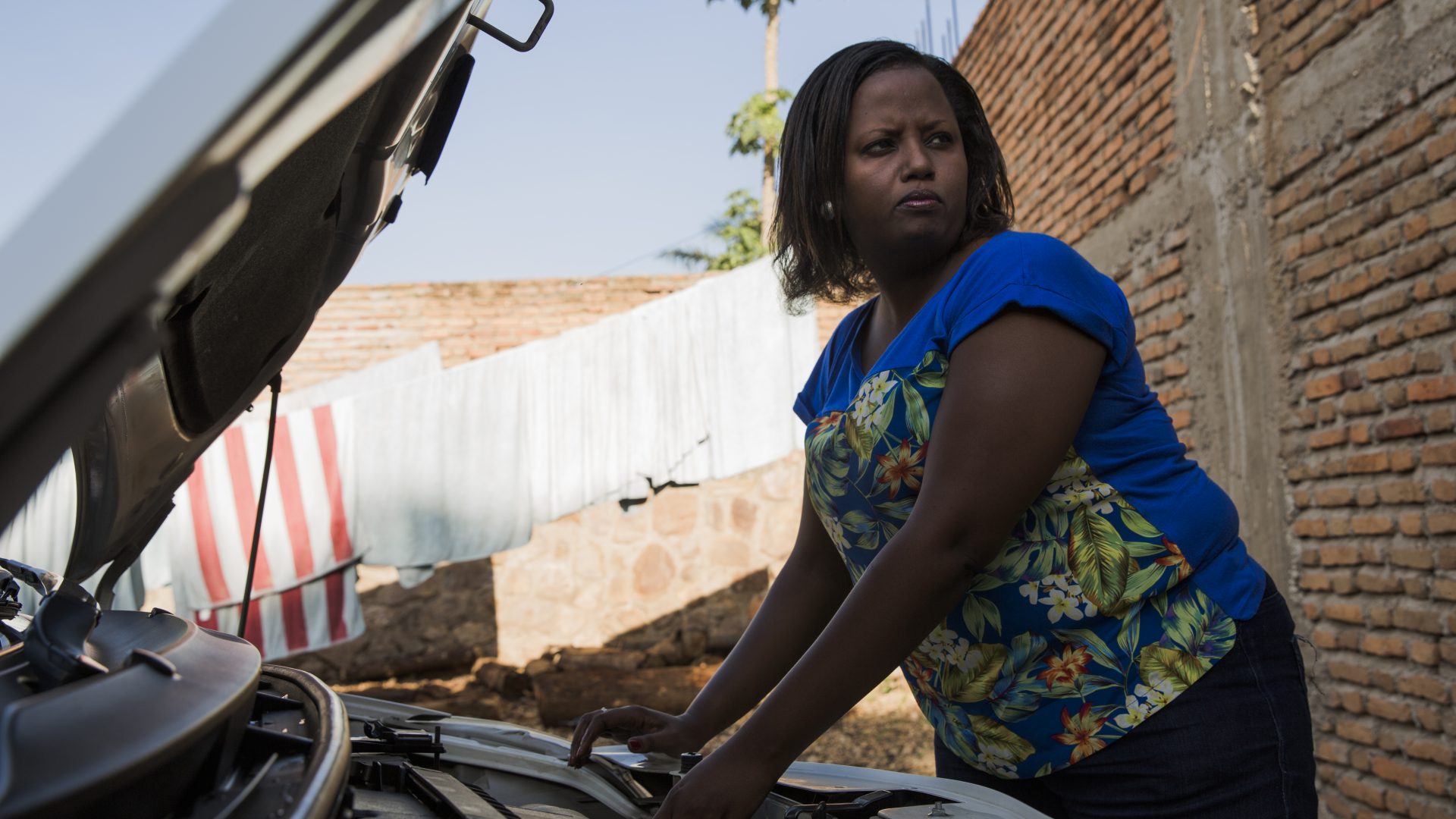Today she laughs when she thinks about that day. “You quickly get used to these riots. I’d never leave my car with the doors open again.” Kwizera is one of the few people who have profited from a political crisis in Burundi, which has driven more than 220,000 people out of their homes since April.
Among those who fled to neighbouring Rwanda, Tanzania, and Congo were lots of taxi drivers; Kwizera grabbed the opportunity to become one of the East African country’s first female taxi drivers in their place. She doesn’t want to flee and she doesn’t let herself be intimidated by her macho male colleagues. “When I heard we were employing women, I couldn’t believe my ears,” comments taxi driver Apollinaire Nikoyagize.
“I thought only men could drive.” The 42-year-old wasn’t alone in his scepticism.
At the beginning, Kwizera had to get used to all sorts of comments, like, “How are you going to change the tyres?”

Bujumbura, the Burundian capital, which is located on the northern shores of Lake Tanganyika, is growing more deserted with every passing day.
Many business, including Chez Nene, have been boarded up for weeks. Children have drawn stick men pictures in the dust on the windows.
Gunfire can often be heard at night and there are unexplained deaths almost every day. The government describes the dead as criminals, while human rights activists say they are opposition figures who have become the victims of targeted killings.
The tiny country, population around 10 million, was plunged into crisis early in 2015 when President Pierre Nkurunziza decided to seek an unconstitutional third term.
Since his re-election in polls that were boycotted by the opposition, there have been repeated violent clashes. In one outbreak of violence in December, 87 people died.
But Kwizera and two of her female colleagues owe their jobs to the crisis. “It’s a blessing,” says Joseph Desire Nsengiyumva, president of the national taxi drivers union.
Since the crisis began, many people, especially women, have been afraid to take taxis after dark. “Since we got three women working for us, the demand has been greater than we can keep up with,” he says.
The traffic in Bujumbura is cut-throat and chaotic. Horns blare while drivers try to edge their way through the traffic jams, often with only millimetres to spare.
Kwizera keeps her cool though, hands resting in leisurely fashion on her furry steering wheel as she negotiates a way through the chaos.
She’s happy about her new job. After the cost of renting the vehicle and the petrol, which has risen steeply in price since the crisis, she’s left with around 80 dollars a month.
“It’s not a lot, but better than sitting around at home doing nothing.”
Passenger Pacifique Batungwanayo is impressed at how calm his driver is, despite the tense situation in the country.
“On our first journey I asked her, ‘Aren’t you afraid?'” he says. “She amazed me. This woman is very strong.”
For weeks now the international community has been demanding that the government enter into dialogue with the opposition to avoid the country sliding into civil war.
It’s a country where the horrors of the past are still fresh: Burundi’s 12-year-long civil war only ended in 2005 after 300,000 people had died.
The fear in Bujumbura is palpable. Road blocks have become the norm. That’s why it’s not always easy to trust passengers and find the best routes, says Kwizera.
“My sixth sense guides me though.”
She has even gained the respect of her male colleagues. “They got used to us quickly. Now we all say hello to each other.”
They all want a return to peace. “When we drive our taxis, we’re all afraid we could be disappeared like the others,” she says.


